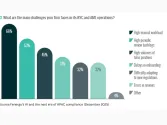Global e-commerce giants’ huge resources pressure Thai online retailers
Aggressive pricing, shifting consumer behavior, and rising logistics costs challenge local businesses.
Thailand’s e-commerce sector is approaching 1 trillion baht in market value this year, accounting for 25% of total retail sales. However, local businesses find it difficult to compete with global players like Temu, Shein, and TikTok, which leverage deep discounts and subsidised shipping.
According to Thanawat Malabuppha, CEO & Co-Founder of Priceza and Honorary President of the Thai E-commerce Association, “Global players offer aggressive pricing and free shipping. For example, Temu and Shein, they are backed by a massive investment, allowing them to undercut local sellers with ultra-low prices.”
Beyond pricing pressure, consumer loyalty has become another major hurdle. “Customer loyalty is hard to maintain. Thai consumers are price sensitive and shop across multiple platforms, so retaining customers requires a strong loyalty program, personal experience, and omni-channel engagement,” Thanawat noted.
Despite these challenges, Thailand’s e-commerce industry continues to expand, driven by three key factors: market growth, changing consumer preferences, and the rise of social and affiliate commerce. The industry has grown from $6.3 billion in 2019 to a projected $57 billion by 2030, with a stabilized annual growth rate of 7% in 2025.
“Brands are working with micro-inventors, brokers, and content creators to engage with their target audience authentically,” Thanawat highlighted. Furthermore, many retailers are now building their own affiliate programs rather than depending solely on marketplaces like Shopee and Lazada.



















 Advertise
Advertise





Commentary
The festive season is a revenue moment – don't let friction or fraud derail it
All that glitters: Is luxury losing its shine, or finding a new one in Asia?